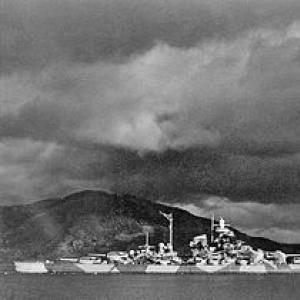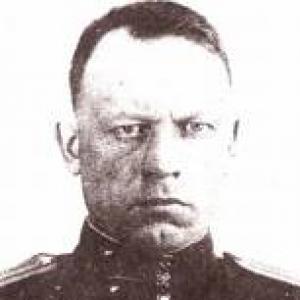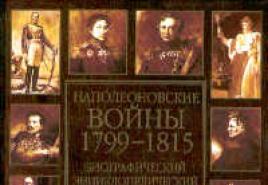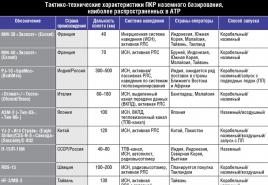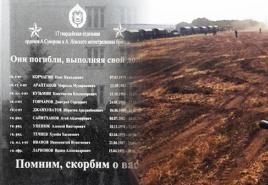Competition of readers "Merry poems about school." Time communication




































 Back forward
Back forward
Attention! Preview slides is used exclusively for informational purposes and may not provide ideas about all presentation capabilities. If you are interested in this work, please download the full version.
1.1. purpose School Competition Readers: Disclosure creative potential Pupils of the younger school ageAttracting interest in literature.
1.2. Tasksschool Competition Readers:
- Education of the culture of reading;
Slide 1 Cement Competition
1. Introducing:
Poetry wonderful page
For us today opens the door.
And the miracle let any anyone get!
You, most importantly, in him with all my heart to believe!
Love and beauty of nature,
The road of fairy tales, the world - any, -
Provided all poetry, - Try!
And open the door to her country!
Vedas - Hello, dear schoolchildren and respected teachers! Today we are holding a competition of readers among students of grades 1-2.
Slide 2. 2015 year - year of literature
Host: 2015 - declared the Year of Literature.
Book! She enters our lives from early childhood, and we get used to her. As you get used to the air that we breathe, to the Sun, which lights everything around.
Slide 3 book
Book! She tells about the fabulous heroes, and about distant countries, and about school life. With a book, each of us travels to the future, and in the past.
Today we will travel to the world of poetry.
Vedas By the way, children, do you know who writes poems? It seems to me that this is composers! Maybe artists? Tell me, how are they called? (Poets).
VedasAt the Competition of the readers, we will be interested to remember those known to you and learn new names of children's poets, and hear poems about school. Guys, what kind of children's poets do you know? S. Marshak, A. Barto, E. Uspensky, S. Mikhalkov, Boris Sadders, K. Chukovsky, Grigory Oster .....
Vedas - To learn the topic of our contest, you need to guess the riddle. Family and will be the topic of our contest.
It is a cheerful, light house.
Guys with agile many in it.
They write and think
Draw and read.
(School.)
Vedas Name the topic of our contest.
Slide 4 School
Slide 5 Competition of Readers.
Vedas Right. The topic of our contest is "funny poems about school."
Slide 5 Cement Competition Press"Merry poems about school."
Slide 6.7 books and children
Vedas No contest costs without the jury. Therefore, let me introduce our jury: _____________
The confession of poems will be assessed as:
- knowledge of text by heart;
- originality of execution;
- Appearance - aesthetics of appearance.
The highest rating is 5 points.
CompetitionI leaf your tomik poems,
The page flashes page.
I look at the children, I understand one thing
What time has come to fight.
Vedas Who is the youngest school? First graders. It is they who start our competition. Poem that is called "first grader" will tell _________ 1 and class
Slide 9 "First Classroom"
Slide 25 A. Old
Vedas Student 2 B class ____________tell what difficulties is the student with a badge, which contains textbooks.
Slide 26 "Tutorials"
Similar textbooks on bricks
Dimensions, shape and weight.
To the one who solved the certificate to get
It is desirable to be Hercules.
I can pull up many times,
Charging in the morning did.
But the school bag bends in the arc,
As if I was going to go.
I do not bother my bag, keep in mind!
This can not be speech.
I will become a scientist, and I will find a way
How to make textbooks easier.
Slide 27 Mark Lviv
Vedas There are days when you don't want to do a homework at all. Hands and legs do not obey. About "naughty legs" will tell a student 2 in class _____________
Slide 28 "Naughty feet"
I went to the table to sit down at the table
And perform lessons
But I did not reach two meters,
How the legs turned!
I go to the table to sit at the table
And perform lessons
But I did not reach half meter,
How the legs turned!
I'm going to sit down at the table,
And again turned his feet:
When I got to the table,
That would make lessons!
Vedas In 2 in the class there is a student who dreams that teachers do not ask for the house lessons. And he has good reasons for it. Is reading ________
Slide 29 "School Year's Time".
Autumn rain drums to me in the window,
At the school of puddles and fond of foliage.
And clouds are gray and wet walkway,
And everywhere dirt, and fell ill ...
Breaks tears sorrow sad nature.
Smeadfully on the heart, and I want to sleep.
Well, as not conscientious in rainy weather
Land is shrouded in crystal pellery,
In the drifts, white dives the defortion,
Skates are shaped, and skis predeter
The blizzard ended, and it's time to the forest.
Full on the street of the merry people!
Winter ledge calls in snowballs to play!
Well, as not conscientious in frost weather
Schoolchildren's lessons ask so much?!
Rays Spring all the land has been shredded,
Green grass buffels everywhere,
And raised above us a bird trill
And the sun shines, and the head is spinning!
Manit in the arms of the Wizard-Nature!
I look out on the street, and I want to walk ...
Well, as not conscientious in wonderful weather
Lessons to us, unhappy children, ask?!
Slide 30. Task for readers:what drawing relates to the poem that you have read. Press.
Slide 31 Lyudmila Fadeeva
Vedas Children. The poet Lyudmila Fadeeva wrote a verse "Opening". This discovery can do each of you for yourself if it tries. We listen to ___________ 2 in class
Slide 32 "Opening".
I tried on Monday
And without bobs lasted.
Tuesday too - well done!
She walked with a shining face.
But Wednesday ...
Thursday...
And Friday !!!
Who will see the diary -
Figure ...
Poor dad my native
Demitted to me a day off.
We wrote
We read
We divided,
Did you read!
We did not watch football!
We forgot that they are tired! ...
And I thought -
Well, honestly! -
What to learn interesting!
Slide 33 " Test”
Vedas Each student is worried when you need to write a test work. The author of the verse Mark Lvovsky on behalf of the student appeals to teachers. Is reading _________
"Examination" Mark Lviv
Test,
Again stir
Teacher, well, why do you
Caught guys by surprise?
After all, they are your tasks
I do not want to decide
Good weather,
And you can take a walk!
After all, mathematics are considered
All the subject is not easy,
Teacher, better remember
How was young himself!
Slide 34 drawings Task for readers: What drawing relates to the poem that you have read. Press.
Slide 35-36.
Vedas Our competition is over. Guys, did you like poems? You can read the poems of these and other authors in the collection of poems "about school with a smile." The collection includes fun and funny poems of children's poets A. Barto, S. Mikhalkov, B. Sadier, V. Berestov, L. Fadeeva, M. Boroditskaya, A. Usacheva, A. Starikova, and others.
Slide 37.
Vedas While the jury summarizes the results of the competition, listen to the verse-E Agniya Barto "Seryozha teaches lessons", the verse is reading the actor. (Recording).
Playing rhymes. Slide 38.
Vedas Let's guys, too, will write poetics as poets. I'll start, and you continue, in a friendly choir answer.
OK, OK, OK. The lesson begins.
Yat, yat, yat. I have in my notebook "five".
Ash, Ash, Ash. I exactly my pencil.
OK, OK, OK. The call rang.
IR, IR, IR. Mom, sign a diary
Slide 39.
Vedas - The word jury. Award. (Readers and Artists - Illustrators)
The competition of readers was a success
And I think everyone has come true!
All the best to you, to new meetings guys!
Appendix 2.
POSITION
about the competition of readers "funny poems about school" among students 1-2 classes
1. The purpose and tasks of the school competition of readers.
1.1. The purpose of the school competition of readers: disclosure of the creative potential of students of younger school age, attracting interest in literature.
1.2. Tasks of the school competition of readers:
- awakening interest in reading;
- upbringing literary and artistic taste;
- Education of the culture of reading;
- Development of speech skills in front of the audience.
2. Place and time of the school competition of readers.
2.1. The school competition of readers will be held ____201__ at 12.30 in the assembly hall.
2.2. The school competition of the readers will be held during the subject week in literature among students of 1-2 classes.
3. Conditions of participation in the school competition of readers.
3.1. Participating 1-2 classes are allowed to participate in the school competition of readers.
3.2. To participate in the school competition, the readers are necessary before _______2015 to apply for:
| F.I. Student | Class and age student | Title of work, author | Performance duration (min) | Full name of the teacher or parent who supported the preparation for the competition |
3.3. Applications for participation in the competition of readers are accepted by the teacher ___
3.4. The number of participants from each class should not exceed four people.
3.5. Participants in the school competition of readers declare a work or an excerpt from it (poem).
3.6. During the speech, musical accompaniment, scenery, costumes, attributes corresponding to the content of the executable work can be used.
3.7. The duration of the performance of each participant is not more than 5 minutes.
4. The composition of the jury and the assessment of the work of the school competition of readers.
4.1. The jury includes 3-5 people from teachers, administration.
4.2. The composition of the jury determines the chairman of MO ________
4.3. The performance of the participants is made by filling out all the members of the special-shaped jury and the stimulation of estimates on a 5-point scale for each of the established criteria. The final assessment is determined by summing up points of the participants with all members of the jury.
4.4. Criteria for evaluation:
- knowledge of text by heart;
- expressiveness and clarity of speech;
- originality of execution;
- Stage culture of readers (appearance);
4.5. Winners are determined by a simple majority of the jury's members.
5. Conducting the results of the school competition of readers.
5.1. According to the results of the discussion, the jury defines the winner in class: one - among the student of the first - second classes.
5.2. Participants in the school competition of readers will receive diplomas.
5.3. The winners of the school competition of readers will receive diplomas.
5.4. Participants of the competition of readers (drawings) will receive thanks.
5.5.Diplomes, letters, thanks will be presented after summing up the competition on the same day.
6. Organizing Committee of the School Competition of Readers:
6.1. Composition of the organizing committee: _______________
6.2. The Organizing Committee presents information about the competition, prepares accompanying documents for the competition, helps in the design of the exhibition, prepares diplomas, diplomas, gratitude.
For jury
Competition readers "Funny poems about school" among students 1-2 classes
Criteria for evaluation:
- knowledge of text by heart;
- expressiveness and clarity of speech;
- emotional painting of the speech;
- originality of execution;
- aesthetics of appearance.
(five-point system)
| F.I. Student | Class | Text knowledge by heart | Speech expressiveness and clarity | Emotional painting speech | Originity of execution | Aesthetics of appearance |
Open lesson by literary reading In the 2nd class prepared: teacher primary classes Andreeva Marina Vladimirovna Date: 12/06/2012 Topic: "Children's poems of Marina Boroditsky. Shells" Objective: Activity: Education of children by selective reading and expressive reading Alive Educational: Expansion of knowledge of M. Boroditsky Task: 1. Acquaintance with the work of M. Boditsky and her poem "Shelli" 2. Overview of the studied poems M. Boroditskaya Type of lesson: Lesson "Opening" of a new knowledge of learning techniques: verbal, visual, Partially search, practical. Forms of study: collective, individual, steam room. Equipment: textbook "Literary reading 2 class" 12ч., Notebook on literary reading, "Reading reading for grade 2", Explanatory dictionary, Portrait of M.Ya. Boroditsky, cards for reflection, presentation "Poems by M. Bouroditskaya", (in children): shells, additional material About seashells, children's collections, drawings to verses M. Bouroditskaya Structure of the lesson Contents stage of the lesson of the task of stage 1.Samo determination (motivation to learning activities ) What is our lesson today? Why do we have a literary reading lessons? (learn how to break, expressively read, retell, answer questions, get acquainted with new authors ...) The motto of the lesson: (read from the board) We will be friendly, we will read, draw conclusions, dream of answering questions and help each other. Create conditions for the occurrence of the student internal need for inclusion in training activities. Wood, forming at this stage Regulatory: Volga self-regulation. Communicative: planning of educational cooperation with the teacher and with peers. 2. Repeat your homework check. What kind of homework did you get on the past lesson? (To learn by heart the poem of S.Machoticin "Pear") How did you prepare it? (Prognostic rating: The success staircase put blue and red magnets 1. Loud, expressive, without a blank ... 2. Loud, without swelling ... 3.. Loudly (students take turns tell poems, put a reflective assessment: I told loudly. , .......; mutualization; teacher's assessment 3. Here is a homework. Questions to the poem What kind of different "wealth" are fighting in the soul at the hero of the poem? (On the one hand, a sweet pear, with another friendship, a good friend of a friend ) Which is very often the cause of loneliness? (Greed) 4. Studying a new material. Actualization of knowledge at the beginning of the lesson. Introduction to the topic of the lesson through the problem. Guess the rebus. (Shells) Slide1 The wind, seagulls quietly the second, waves whispering the surf make it only To the Ear! The sea hid in / shell /! What does the word "shell" mean? (children's responses) Where can we find the meaning of the word "shell"? (In the sensible dictionary) Shell protective education, covering the body of the mollusk (sink - type of body protection many invertebrates animals.) What product will we meet today at a lesson? ("Sheets") Slide2 And who is the author of this poem? Right. Marina Yakovlevna Boroditskaya. Slide 3 This is the topic of our lesson setting the purpose of the lesson. So today, the guys we will talk about the work of Marina Boditsky, and since we are still "visiting Badger," we will continue the conversation about the comparison of the world of material things and friendship How will we work to achieve this goal? What will task? Learn more about the work of M. Bouroditskoy Get acquainted with the poem "Shells" Remember the verses of M. Bouroditskoy Implementing the tasks of the lesson acquaintance with the creativity of the author. Marina Boroditskaya - a modern children's poet, translator of French and English poetry, teaches english In Moscow State University, leads the transfer of the "literary pharmacy" on the radio of Russia. (Slide 3) Author 3 lyrical collections, personal: action of sense formation. Communicative: educational cooperation planning with teacher educational: general educational: ability to structure knowledge, control and evaluation of the process and results; Logic: analysis, synthesis, choice of bases for comparison. Regulatory: control, correction; And with peers. 12 books of poems for children. (Slides 47) And in what sources can you get acquainted with the verses of M. Bourditskaya? (In the books: "Literary reading", "Russian language", "Krestomatia", "ABC"; on the Internet). You are already familiar with some of them. What did you notice? What are they poems by M. Bouroditskaya? (They are easily read and remembered, they are kind and humorous.) What task was solved? What did you say? (about the work of M. Bouroditskaya) Work on the poem "Shelli" Now we will meet the poem "shells" What skills need to show when meeting this poem (return to the motto) Reading the teacher of the poem "Shelli" (accompanied by the video "Beauty of Shecausheys" ) (Slide 8) liked the poem? - What did you like? - Name the main heroes of the poem? What did they do? Selective reading: read the first 4 lines. What are these lines? (The hero tells about himself and about the brother) read the last 4 lines. What can you say? (And in these lines, the hero tells about himself and about the brother) and what does most of the poem are dedicated? (Shell description) Work in a pair. Expressive reading (negotiate who the passage will read expressively, the hands of the house) prognostic and reflective assessment What additional material did you find about the shells? (Children's responses) Over what task is now working? (We read the poem "shells") what do you think, are shellowers wealth? (find out with the teacher) 1. These are very beautiful, unique works of nature itself, which means that wealth; 2. This may be a collective name, and the real collector is a rich man (he loves what collects, can tell a lot about his collection); (And who is such a collector? (A collecting person, i.e. collecting some objects ...) 3. Shells are what the children were collected together, and therefore compared, they boasted finds, they were talking, and this is a common wealth. . Conclusion: Communication is the most important and important value How do you answer Mishe? (Seashells real wealth) Stories of children about their collections. (Additional task) with what cope with the task? (Reading and analyzing the poem "shells") What task remains to be solved? (No, it remains to recall the verses of M. Boroditskaya) Anishit Yokopovna demands that we start with the poem "the sorcerer do not fall" Music pause. Now we will dance with the song to the poems M. Boroditskaya. ("The sorcerer does not fall"). (Slide 9) Anishit Yokopovna wants to know what you know the poems by M. Bourditskaya. (Students tell the prepared poems and demonstrate their drawings to them, an additional task) Game "Armaged poem M.Y. Bouroditskaya" First Classroom, first-grader dressed up for a holiday! I didn't even go to the puddle: I was glad and passed. ("First-grader") Are you waiting for: When will he come? Wake up at the dawn, everything is as always, and New Year For a long time in the yard! ("New Year") I clean the vegetables for the other. How much do vegetables need? Three potatoes, two carrots, onions. One and a half heads ... ("Shield") I sat wrote hooks - and Petrov played snowballs. I ran to the lessons - and Petrov was still lying. ("About Petrova") There were two buddies: Bublik and Baton. Waited for the buyer Bagel and Baton. ("Bakery Song") Speakeled by saying with me. Do not cant! I asked. What are you manual? ("Here is such a sparrow") The bear and hare near the forgotten are lying: the younger brother left for the cottage with a kindergarten ("I left the younger brother") And what kind of poems by M. Bourditskaya prepared a reflection at the end of the lesson guys, we coped with all the tasks of the lesson? And now appreciate your work at the lesson, starting in one of the phrases: "I am today to organize a reflexive analysis of training activities from the point of view of communicative: the ability to express your thoughts. Regulatory: the volitional lesson learned ... "," it was difficult ... "," I would praise myself ... "," I managed ... "Rate the work of each other: choose one of the phrases you are well done. I am pleased with your work in the lesson. You could work better. fulfillment of the requirements known to students. self-regulation; Evaluation - allocation and awareness of the students of what has already been learned and what is still subject to assimilation, forecasting. 12. Homework: To learn by heart the poem of M. Bouroditskaya from any textbook. ("Kitchen", "Little brother", "Sparrow" ...) End the lesson with the words M. Bouroditskaya from an interview: "Children's reading, like baby food, must be delicious, and useful, and diverse" children are given the opportunity Guess adjectives). [Slide 10] In memory of this lesson, you receive as a gift Booklets with the English translation "Royal Review" and the appeal of M. Bourditskaya to children. Thanks for the lesson. (wherein

